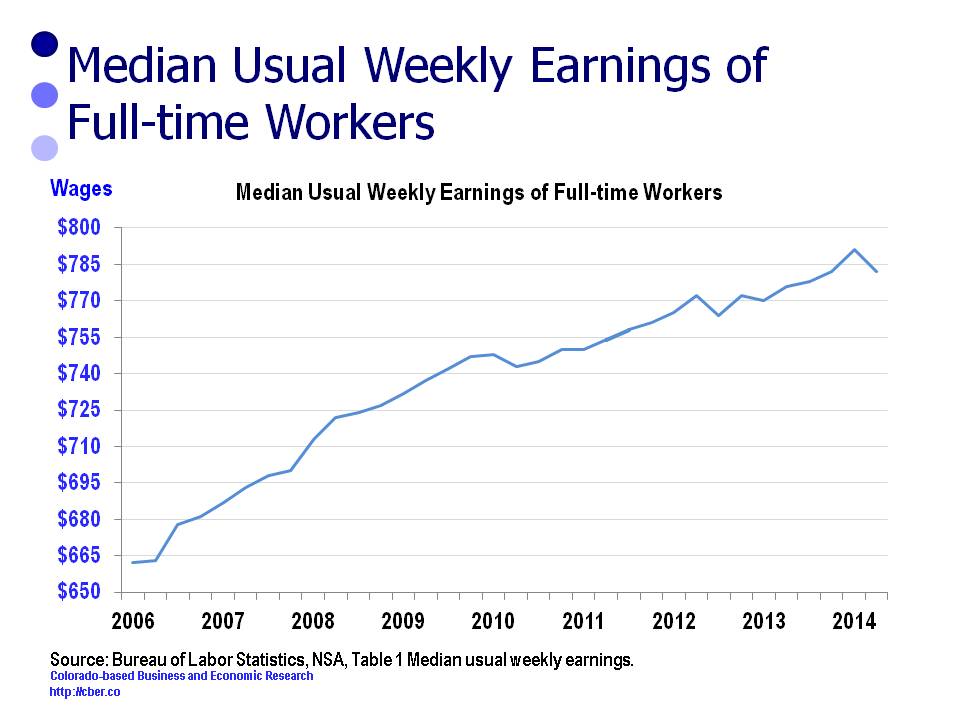A lot has been written about the lack of significant U.S. wage growth since the end of the Great Recession. Quite frankly, the abundance of qualified workers looking for jobs has not incented companies to raise wages.
Since the end of the Great Recession in July 2009, the unemployment rate has fallen from 9.5% to 6.3%. In addition, the country has added 8.8 million jobs. This decline in the unemployment rate and the increase in the number of jobs has occurred at a painfully slow rate. As a result there has been minimal pressure to increase wages in many sectors.
Median usual weekly earnings of the nation’s 106.6 million full-time wage and salary workers were $782 in Q2 2014 compared to $776 in Q2 2013. When inflation is accounted for (2.1% CPI), this wage rate represents a slight decline in wages.
Ten of the 22 two-digit occupation codes have unemployment rates below 5.0%, including computer and math (15), architecture and engineering (17), management (11), business and finance (13) and healthcare practitioners (29). Eventually demand for workers in these occupations will drive increases in wages. As well, rapid growth in sectors such as the extractive industries will drive direct and indirect industry wage growth.
This is just another sign of how painful the recovery from the Great Recession has been for some Americans.
